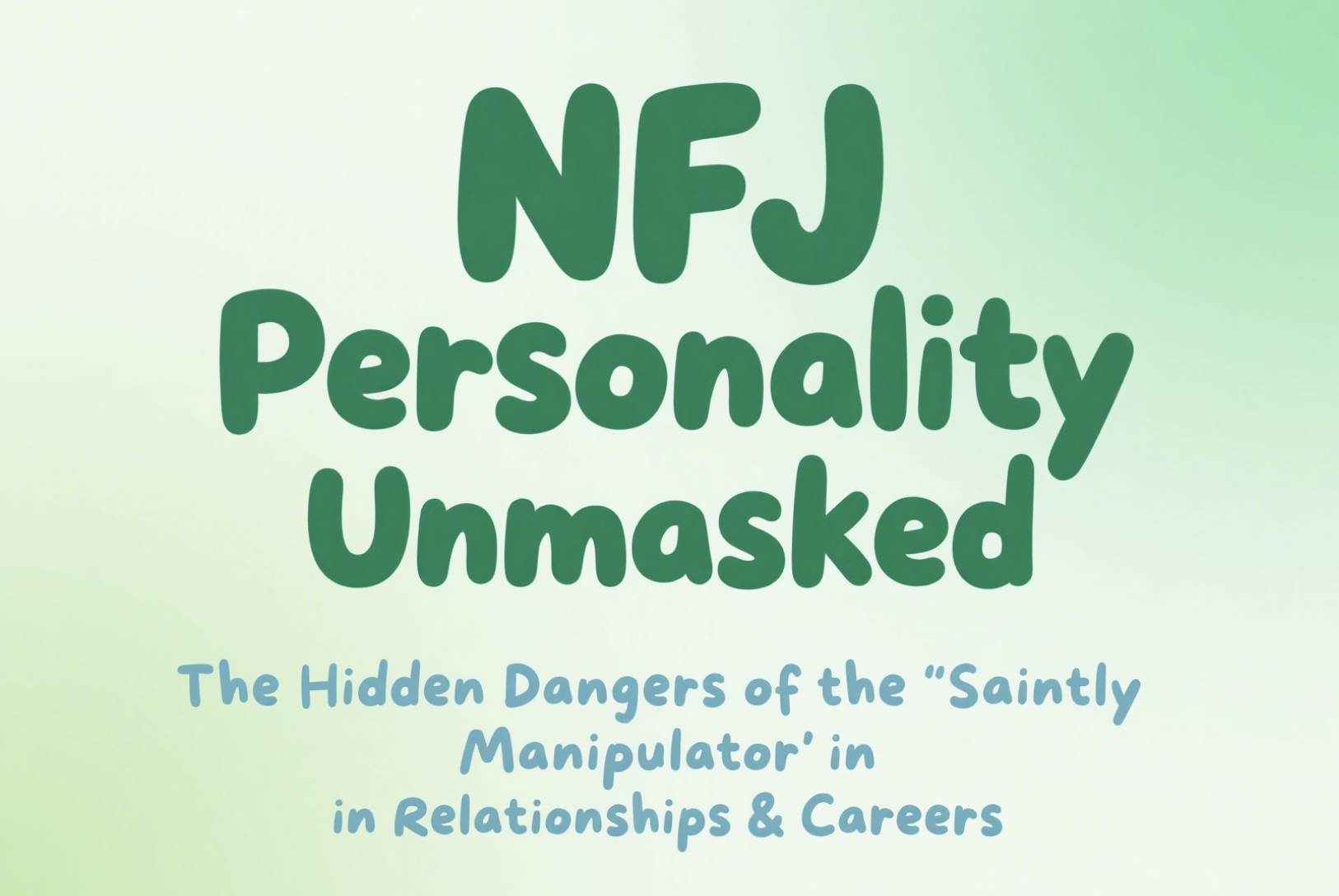NFJ Personality Unmasked: The Hidden Dangers of the 'Saintly Manipulator' in Relationships & Careers

The INFJ Paradox: Saint or Shadow Manipulator?
The INFJ personality type, often romanticized as the “Advocate” or “Counselor,” is celebrated for empathy, moral conviction, and visionary thinking. Yet, a growing discourse—particularly in East Asian online communities—highlights a darker pattern: some INFJs weaponize their saintly image to exploit others emotionally. This phenomenon, colloquially dubbed “INFJ姐” (INFJ “elder sister”), reveals a toxic subtype that thrives on sacrificial dynamics, leaving allies drained under the guise of mutual growth.
Case Study: The “INFJ甄嬛” Archetype
References to Empresses in the Palace’s protagonist Zhen Huan—a strategic, morally ambiguous INFJ—illustrate this tension. Like the character, real-life INFJs may attract followers with charisma and apparent altruism, only to discard them when their utility expires. The survivors? Those like the pragmatic Jing Fei and Duan Fei, who maintained boundaries while collaborating. The lesson: INFJs’ intentions (“论心”) often pale against their actions (“论迹”).
5 Red Flags of a Toxic INFJ
The Martyr Complex: They frame personal sacrifices as noble, guilting others into reciprocity.
Selective Emotionality: Tears or moral outrage emerge when challenged, deflecting accountability.
Ideological Gaslighting: They label dissenters as “immoral,” reinforcing their moral high ground.
The Bloodbag Effect: Followers are drained under the pretense of “shared purpose” (e.g., careers, activism).
Outcome Discrepancy: Their inner circle suffers repeated misfortunes, while they ascend.
Why Green Types (ENFP/INFP) Are Vulnerable
Idealists like ENFPs and INFPs, or “绿人” in the original text, are prime targets. Their trust in others’ goodness and desire for harmony blinds them to INFJs’ subtle control. The “娇妻” (submissive spouse) dynamic transcends gender—it’s about power asymmetry masked as devotion.
Career Implications: Navigating INFJ Leadership
In workplaces, INFJs excel as mentors or CSR leaders but can falter as managers if unchecked:
Pros: Inspire teams with long-term vision, mediate conflicts.
Cons: May exploit loyal employees’ labor, framing overwork as “mission-driven.”
Solution: Document contributions, negotiate clear KPIs, and diversify professional alliances.How to Engage Safely: Boundaries Without Burnout
Detach from Their Narrative: Question whether their “cause” benefits you equally.
Practice Strategic Distance: Like Jing Fei, collaborate without enmeshment.
Spot Love-Bombing: Over-the-top early praise often precedes exploitation.
Audit Emotional Labor: Track time/energy spent on their goals versus yours.
The Balanced View: Not All INFJs Are Toxic
This critique targets a subset, not the type itself. Healthy INFJs:
Accept criticism without defensiveness.
Encourage others’ autonomy.
Share tangible resources, not just “wisdom.”
Final Takeaway
INFJs’ duality—visionary yet potentially vampiric—demands discernment. By focusing on actions over words, even the most empathetic personalities can avoid becoming “甄嬛党无人生还” (casualties of the Zhen Huan faction). In careers and relationships, sustainability trushes martyrdom.




